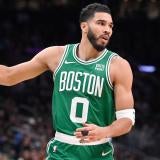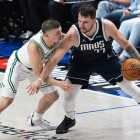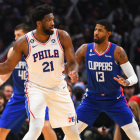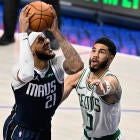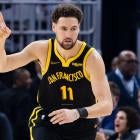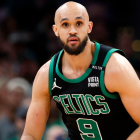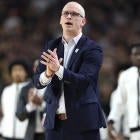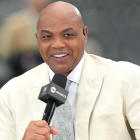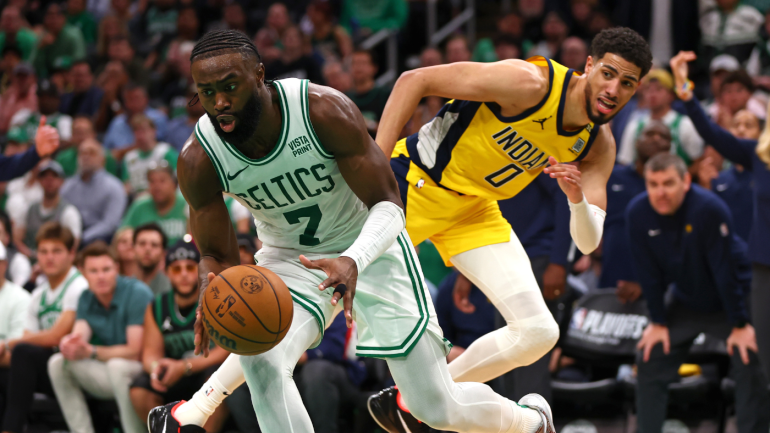
After Jaylen Brown blistered the Pacers in Boston's Game 2 victory Thursday night, all the talk was about his All-NBA snub and how it supposedly served as the fuel for his 40-point fire. Brown downplayed this theory: "We're two games from the Finals, so honestly I don't got the time to give a f---," he said of the All-NBA conversation.
Maybe he's telling the truth. Something tells me he isn't. Pro athletes, certainly the best of them, will hunt for the tiniest seeds of motivation. And there's nothing wrong with that. Brown has every right to believe he should've made at least third-team All-NBA. He's obviously not alone in that sentiment.
Why didn't he make it? First of all, Jayson Tatum -- who made the First Team -- is regarded as Boston's superstar while the rest of the team is assigned more of an aggregate valuation. To a degree, I actually agree with this. And you can argue that there are 15 players more deserving of selection over Brown. I would've put Brown on the third team over Domantas Sabonis at the very least, however.
Another potential reason that Brown was left off a 2024 All-NBA team is that he made second-team All-NBA in 2023, which earned him roughly an extra $100 million on the record-breaking five-year max contract he signed with Boston last summer that could end up being worth over $300M.
Let me restate that: Jaylen Brown is going to make an extra one hundred million dollars because he made an All-NBA team in 2023. Had he not made an All-NBA team, the Celtics only could've paid him $189M over four years.
The reason for this massive pay bump lies in the CBA weeds that qualify a player to make 35% of the total salary cap rather than maxing out at 30% if he makes All-NBA in the year of the extension, or in two of the previous three years.
So let me ask you: If you were a voter and you were choosing between two players with relatively equal All-NBA cases, but one of them had already gotten the full super-max money and one of them still needed the All-NBA distinction to secure top dollar, would the financial fallout factor into your vote?
I'm not a voter, but if I was, I would have trouble sleeping at night if I cost a player tens of millions of dollars because I put a check mark next to somebody's name. Brown's bag is full. Tyrese Haliburton's is not. Or was not, until he made the Third Team this week.
The complete voting results for the 2023-24 Kia All-NBA Team: pic.twitter.com/KrG4Fjc9pW
— NBA Communications (@NBAPR) May 22, 2024
To be fair, neither Sabonis nor Devin Booker stood to make any more money with their selection, and Brown probably should have made it over both those guys. But voters don't know the outcome when they're filling out their ballots. What they did know is that Haliburton, who was the second-lowest Third-Team vote getter, needed this All-NBA nod to make an extra $45M on the extension he signed last summer, and that Brown didn't.
Voters should not carry the power, or burden, to make that distinction. They should not be asked to decide, either directly or indirectly via the downstream effects of the lower salaried allocations, who gets paid and who doesn't. Not with this kind of money at stake.
Outside of Haliburton, if voters were going to err on the side of someone with a legitimate case who also needed the nod for his max money, Tyrese Maxey would've been the guy. By not making one of the three teams, Maxey lost $40M on the extension he's about to sign with the 76ers this summer.
Now understand, this column shouldn't be confused with an assertion that Maxey should have made the team. He had a case as one of five players in the entire league to average 25 points and six assists on at least 37% 3-point shooting. Are Booker's two more points and less than one extra assist per game a reason for Maxey's next contract to be $40M lighter?
At the end of the day, however you might answer that question, having that much control over that kind of money is too heavy a burden for voters, who understandably want to be untainted in their evaluations, to carry.
Unfortunately, this is the setup right now, and as long as that's the case, there are always going be financial implications in the back of voters' minds. I suspect it was at least part of the reason Brown got "snubbed."









